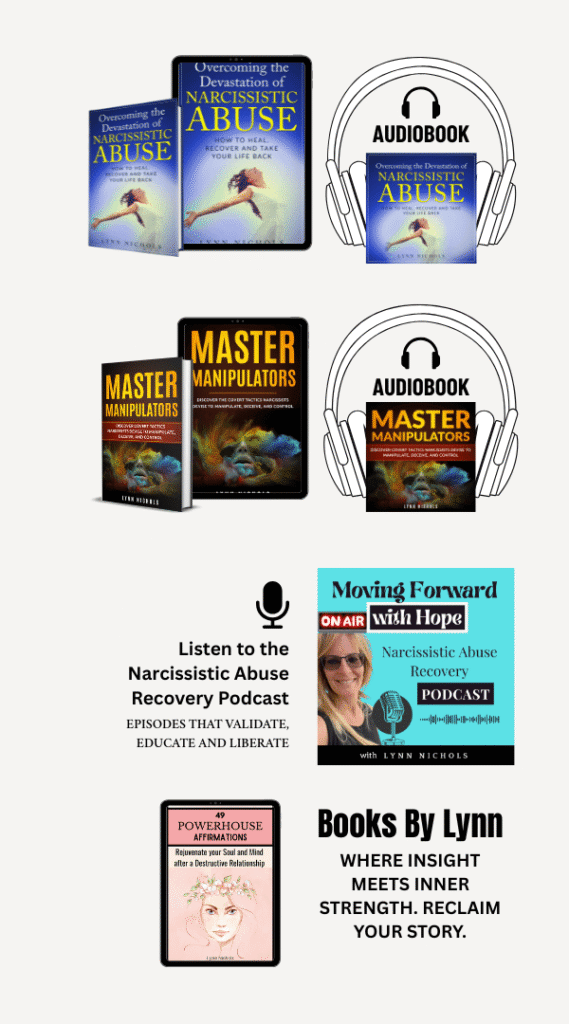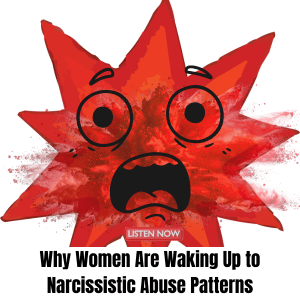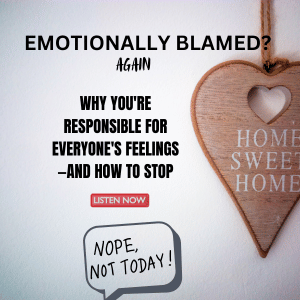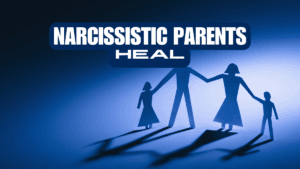3 Truth-Telling Books by Lynn That Cut Through the Noise of Narcissistic Abuse
What I Wrote After I Saw It Clearly
These books weren’t born from theory. They came from the kind of silence you carry when something has happened to you—but you don’t yet have the words for it. They came from the in-between spaces, the questions no one could answer, the nights spent retracing conversations trying to figure out if you were overreacting or slowly being erased.
I didn’t write these because I had all the answers. I wrote them because I had to. Because there comes a point in every woman’s life where silence is more dangerous than the truth. These words are for that moment.
If you’re here, you’ve probably already started to see it—the cracks, the patterns, the feeling that something’s been off for a long time. Maybe you’ve left. Maybe you haven’t. Maybe you’re trying to rebuild a self that feels unfamiliar after years of shrinking.
Wherever you are in your process, these pages are for you. Not to fix you. But to walk beside you, name what’s happening, and remind you that you’re not crazy, not alone, and absolutely not broken.
The Unseen Aftermath
You don’t always know it’s abuse while it’s happening. Sometimes it feels like confusion. Like being on edge for no reason. Like shrinking yourself just enough to keep the peace. You tell yourself it’s just stress, just tension, just a phase.
But then it starts to unspool.
Maybe he tells a version of events that never happened. Maybe you begin to doubt your memory, your judgment, your own gut. You apologize too often. You freeze. You scan the room before you speak. You adapt.

And when it ends—if it ends—it doesn’t feel like freedom. It feels like free fall.
That’s the part no one talks about: the devastation after. The empty space where your identity used to be. The mental noise that doesn’t stop. The silence, so loud it feels like you’re being erased in real-time.
Friends don’t understand. Family doesn’t get it. You search online late at night trying to find someone, anyone, who can describe what just happened to you.
And then you see the words: gaslighting, trauma bond, covert narcissism.
It clicks.
But now what?
The Lie of Moving On
They’ll tell you to let it go.
To stop talking about it. To be the bigger person. To take the high road. They’ll praise you for your strength—if by strength they mean silence. They’ll say “at least he didn’t hit you,” or “you’re dwelling too much,” or “everyone makes mistakes.”
And they’ll mean well. That’s what makes it worse.
Because when you’ve been manipulated, emotionally splintered, gaslit, and reduced to a version of yourself that even you barely recognize—being told to “move on” is not just tone-deaf. It’s retraumatizing.
You’re not just grieving the relationship. You’re grieving who you were before you started questioning your sanity. You’re grieving the time you can’t get back. The parts of yourself you abandoned to keep the peace. The voice you silenced. The instincts you overrode.
Moving on isn’t the goal. Moving through it is. Naming it. Feeling it. Decoding it. Undoing it. Reclaiming what was buried. That’s not bitterness. That’s the real work. The work no one claps for. The part you do alone, unseen, when the world thinks you’ve already healed.
That’s why “just move on” is a lie. It skips the most important part: the becoming.
Naming It – The Power of Language
There’s a particular kind of freedom in finding the right word. A word that captures something you’ve felt in your bones but didn’t yet know how to name. It doesn’t just describe your experience. It validates it.
Words like gaslighting or trauma bond are more than terms. They are lifelines. They give structure to the chaos. They restore the parts of your mind that were manipulated into silence.
When you can name what happened, you can begin to understand that it wasn’t your fault. You weren’t being too sensitive. You weren’t overreacting. You were being conditioned.
Language is one of the first things that abuse takes from you. It confuses your sense of what is real. These books were written to give you the words back.
When Healing Becomes Resistance
You start out wanting to feel okay again. To stop the pain. To sleep. To eat. To not flinch when your phone buzzes.
But somewhere along the way, healing starts to feel like something bigger. Like a quiet rebellion. Like you’re undoing more than just one relationship. You’re untangling decades of conditioning. You’re shedding the expectations that told you to stay small, stay silent, stay sweet.
Every time you set a boundary, it echoes into the culture that raised you. Every time you say, “No more,” you’re not just protecting yourself. You’re challenging the system that normalized the abuse in the first place.
And that’s what makes this kind of healing political. Not in a party-aligned way, but in a power-aligned way. You are reclaiming your autonomy. Your clarity. Your capacity to trust yourself again.
Related: Resources for Women – Get Started, Get Back on Your Feet, Let’s Get Going – This is For You! (It’s Your Time Now!)
Our Latest Podcast Episodes
Narcissistic Abuse Recovery Podcast
Validate. Rebuild. Revolutionize. (and Patriarchy Deconstruction)
Discover a safe haven and a wellspring of insight with the Narcissistic Abuse Recovery Podcast (formerly Moving Forward with Hope – Narcissistic Abuse Recovery Podcast). In this candid, thought-provoking current series, host Lynn—personal survivor, author, and passionate recovery advocate—guides you through the landscape of toxic relationships and the covert dynamics of narcissistic abuse. With honesty, depth, and a healthy dose of tough love, Lynn helps you recognize the subtle tactics of manipulation and offers practical strategies to heal, rebuild, and reclaim your power.
Episodes dive deep into the complexities of narcissistic family systems, exploring roles like the scapegoat and golden child, and shedding light on the profound pain of ostracization. We tackle topics such as going no contact, setting boundaries, and uncovering the covert dynamics that keep you from thriving. Our conversations extend beyond personal trauma to examine how narcissism is woven into broader cultural systems—including the influence of the patriarchy on gender roles and equality.

Podcast Episode: Why Women Are Waking Up to Narcissistic Abuse Patterns
Recognize the scapegoating dynamics that kept you trapped in blame

Podcast Episode: Family Scapegoat: Why You Weren’t the Problem
Discover how scapegoating works and reclaim your truth

Podcast Episode: Emotionally Blamed? Scapegoat Exhaustion in Narcissistic Abuse
Why you’re responsible for everyone’s feelings—and how to stop
What the Books Offer
These books aren’t formulas. They aren’t one-size-fits-all advice. They are pieces of a much bigger process—a process that is messy, nonlinear, and profoundly personal.
Overcoming the Devastation is the hand you reach for when the pain is still fresh. When everything feels shattered. When you’re trying to make sense of the manipulation and regain your footing.
Master Manipulators is for when the fog has started to clear and you want to understand what really happened. It helps you trace the patterns, decode the tactics, and realize how systemic and calculated emotional abuse can be.
49 Powerhouse Affirmations is for when you’re ready to speak differently to yourself. When you’re reclaiming your inner voice. When the goal isn’t just surviving—it’s rebuilding with intention, strength, and clarity.
These books weren’t written to impress. They were written because silence became too expensive. Because I needed to speak, and maybe you need to hear it.
This Work is Yours Now
Before you go, know this: the work doesn’t stop with the books. If you’re looking for continued insight, validation, and connection, the journey continues on the Narcissistic Abuse Recovery Podcast—hosted by yours truly, available on all major platforms. Every episode is designed to meet you where you are, whether you’re in the thick of healing or just beginning to ask the hard questions.
You’ll also find empowering articles, downloadable guides, and other healing tools throughout this website. These resources aren’t fluff—they’re crafted to dismantle the cultural conditioning that keeps women small and silent.
Your healing is not a trend. It’s a revolution. And you’re not doing it alone.
If you’ve made it this far, it’s not because you stumbled onto a book page. It’s because you’re looking for something deeper—something honest. Something that doesn’t just offer answers, but permission. Permission to grieve. To be angry. To ask better questions. To change how you relate to yourself.
These books are here when you’re ready. Not to tell you what to do, but to walk beside you while you do it.
Because healing from narcissistic abuse isn’t just about feeling better. It’s about remembering who you were before you were taught to question yourself.
And that work? It’s yours now.
As an Amazon Associate, we earn from qualifying purchases.
lynn lynn lynn lynn lynn lynn lynn lynn lynn lynn lynn lynn lynn lynn lynn lynn

10 Signs You’re Dealing with a Malignant Narcissist: Understanding and Protecting Yourself
10 Signs You’re Dealing with a Malignant Narcissist: Understanding and Protecting Yourself Facebook Youtube Instagram Twitter Medium Detect the Malignant Narcissist… Malignant narcissists are among

3 Ways to Heal from the Destructive Influence of Narcissistic Parents and Reclaim Your Life
3 Ways to Heal from the Destructive Influence of Narcissistic Parents and Reclaim Your Life Facebook Youtube Instagram Twitter Medium Do You Have a Narcissistic

Step One (1): Cutting Contact Mastering the Art of Going No Contact: Your Beginner’s Guide
Cutting Contact for Growth: The Simplified Guide to Going No Contact Facebook Youtube Instagram Twitter Cutting Contact is Not Easy Going no contact is a

130: Why Scapegoats Become People Pleasers | Narcissistic Abuse
The survival strategy that keeps you trapped—and how to recognize it

Energy Vampires: 3 Bewildering Truths about Narcissistic Supply
Energy Vampires: Is it All About Narcissistic Supply? Facebook Youtube Instagram Twitter Medium You may have heard the term narcissistic supply and at first, you

Episode 96: Why True Partnership Requires Destroying Patriarchy, Not Just Criticizing Men
The Hidden Connection Between Narcissistic Abuse and Patriarchy Are you seeking True Partnership and wondering why it’s so hard to find? Follow our work beyond

Ep. 115 Men Know What Respect Is: Why the Confusion Excuse Doesn’t Hold Up
Ep. 115 Men Know What Respect Is: Why the Confusion Excuse Doesn’t Hold Up Observing How Men Show Respect to Each Other Reveals What They’re

Fight, Flight, Freeze, Fawn: How Trauma Responses Shape Our Everyday Lives (And We Don’t Even Realize It)-3 Lessons
Fight, Flight, Freeze, Fawn: How Trauma Responses Shape Our Everyday Lives (And We Don’t Even Realize It)-3 Concepts Facebook Youtube Instagram Twitter Medium Trauma Response
lynn lynn lynn lynn lynn lynn lynn lynn lynn
